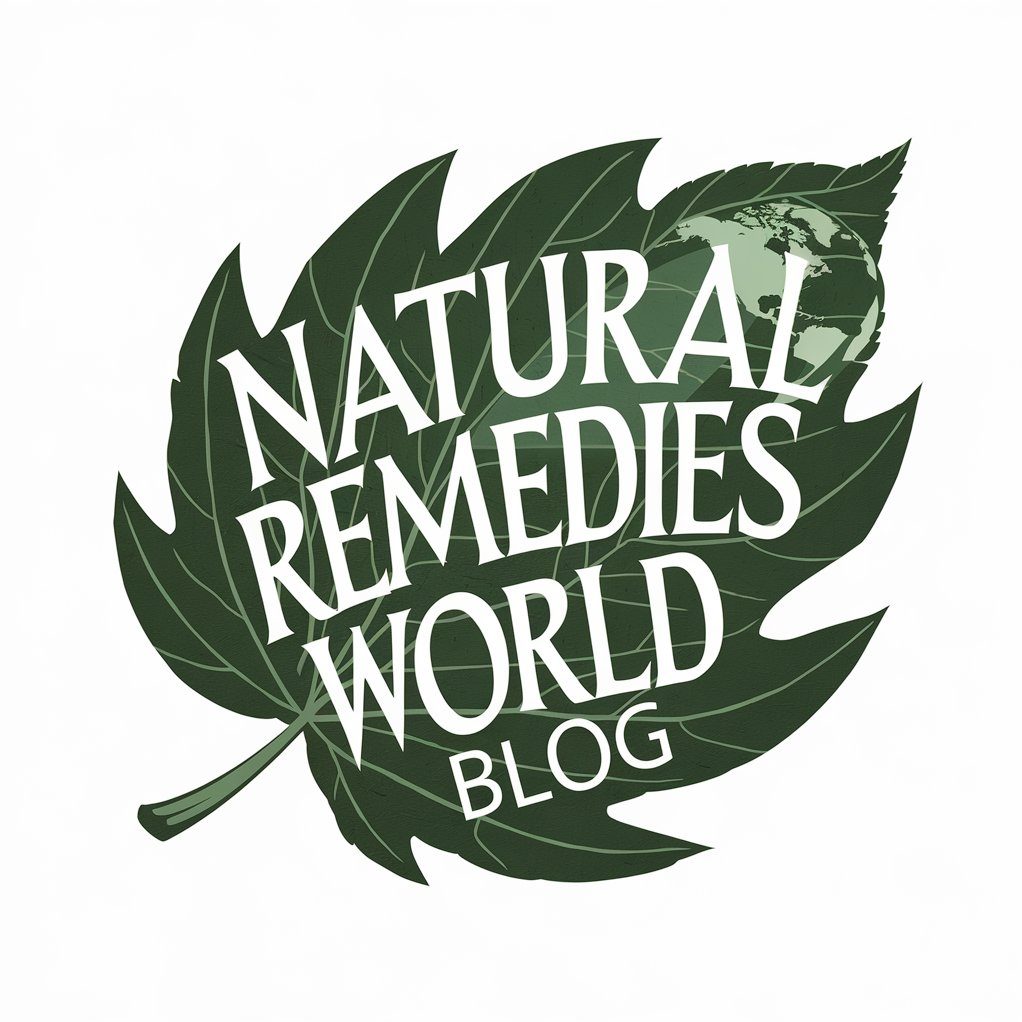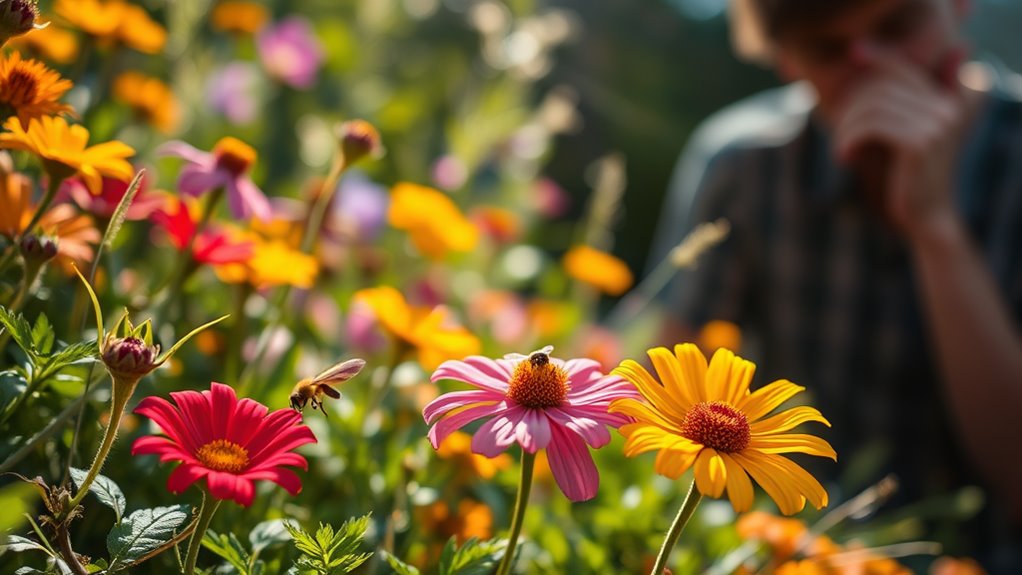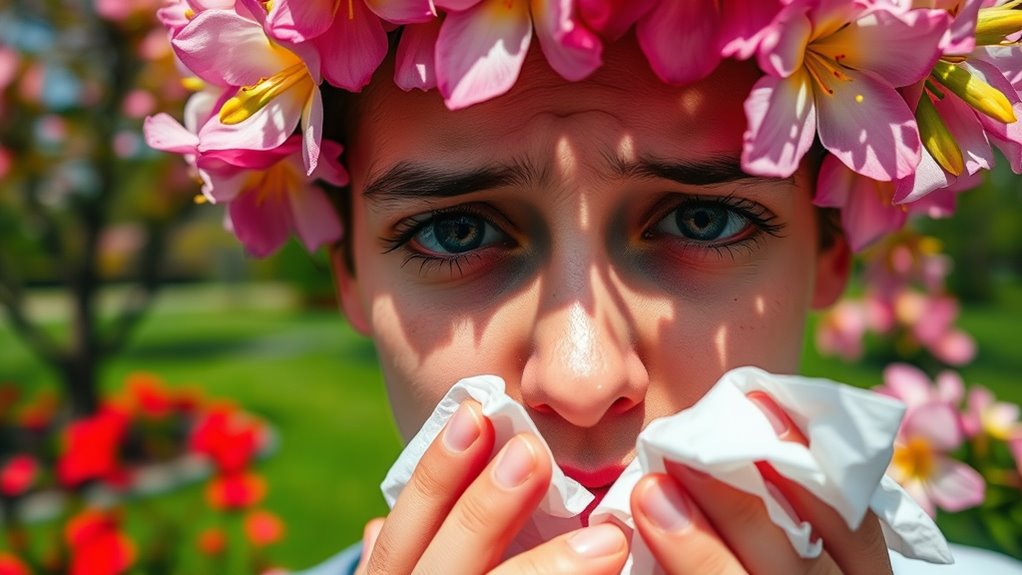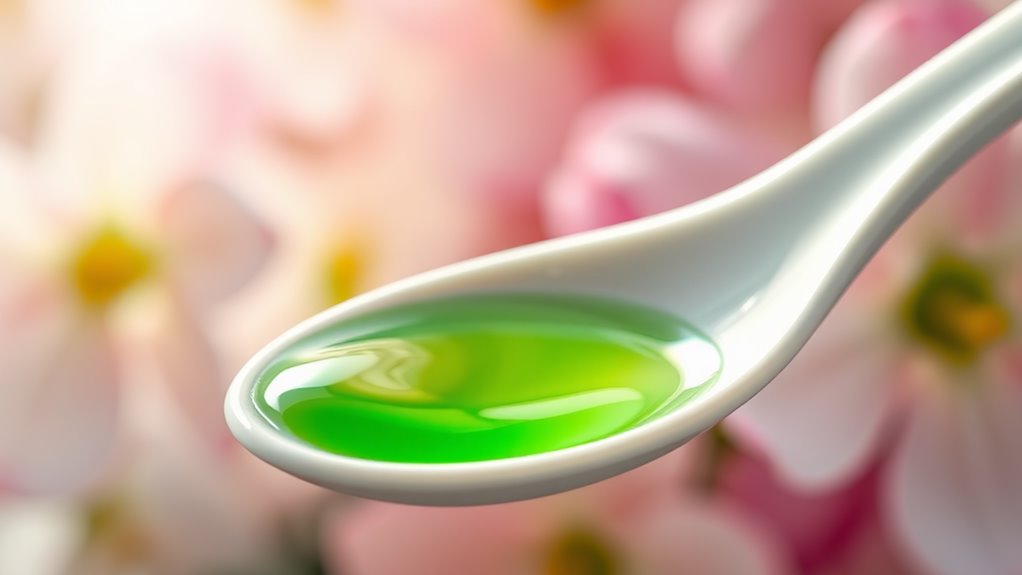10 Shocking Facts About Seasonal Allergy Relief!
You might be surprised to learn that local honey can help ease your allergy symptoms by exposing your body to local pollen. Indoor air quality plays a big role too; clearing dust and using HEPA filters can make a difference. Foods rich in omega-3s and vitamin C can alleviate symptoms, while regular exercise boosts your immune system. Don’t forget hydration; it’s key to thinning mucus. Discover more unexpected strategies and remedies that can provide relief!
The Role of Local Honey in Allergy Relief
While you mightn’t think of honey as a remedy for allergies, local honey can actually play a role in easing your symptoms.
When bees collect nectar from local flowers, they also gather pollen, which can help your body build immunity. By consuming local honey regularly, you might expose yourself to small amounts of this pollen, potentially reducing your allergic reactions over time.
It’s important to choose honey from local sources, as this ensures the pollen is specific to your area. You could start by adding a spoonful to your morning tea or drizzling it over oatmeal.
How Indoor Air Quality Affects Seasonal Allergies
Since most people spend a significant amount of time indoors, the quality of your indoor air can greatly influence your seasonal allergies. Indoor allergens like dust mites, pet dander, and mold can accumulate, worsening your symptoms.
If your home’s ventilation system isn’t clean or efficient, it can circulate these irritants, leading to increased discomfort.
To improve indoor air quality, consider using HEPA filters in your HVAC system and regularly vacuuming with a HEPA-equipped vacuum cleaner.
You might also want to keep humidity levels low, as dampness encourages mold growth. Regularly cleaning and decluttering your space can also help reduce allergen buildup.
Surprising Foods That Can Alleviate Allergy Symptoms
Have you ever considered that what you eat might impact your allergy symptoms? Certain foods can actually help alleviate your discomfort during allergy season.
For instance, foods rich in omega-3 fatty acids, like salmon and walnuts, can reduce inflammation in your body. Spicy foods, such as chili peppers, can help clear nasal passages and relieve congestion.
Additionally, local honey may help your body build immunity to local pollen. Incorporating fruits and vegetables high in vitamin C, like oranges and bell peppers, can also boost your immune system.
Don’t forget about probiotics found in yogurt, which can support gut health and potentially lessen allergy symptoms.
The Impact of Weather Patterns on Allergies
Food can play a significant role in managing allergy symptoms, but weather patterns also heavily influence how and when allergies strike.
For instance, warm, dry, and windy days can elevate pollen levels, making your allergies flare up more intensely. Conversely, rainy weather can wash pollen away, providing temporary relief.
Additionally, temperature changes can trigger different plants to release pollen at varying times, affecting your allergy timeline. You might notice that your symptoms worsen during seasonal transitions, as plants and trees start to bloom.
Understanding these patterns helps you prepare better; you can take preventive measures, like staying indoors on high pollen days or using air purifiers, to minimize your exposure and keep your allergies in check.
Natural Supplements That May Help Combat Allergies
If you’re looking for ways to ease your allergy symptoms, natural supplements might offer some relief.
Quercetin, a natural antihistamine found in onions and apples, can help stabilize mast cells and reduce histamine release.
Another option is butterbur, which has anti-inflammatory properties and may alleviate nasal congestion.
Additionally, probiotics can support your immune system, potentially reducing allergic reactions.
Omega-3 fatty acids, found in fish oil, might also help lower inflammation.
Lastly, vitamin C is well-known for its antioxidant properties and may reduce histamine levels in the body.
Always consult with a healthcare professional before starting any new supplement, as they can help you determine the best approach for your specific needs and avoid potential interactions with other medications.
Mindfulness and Stress Reduction Techniques for Allergy Sufferers
While managing allergies can feel overwhelming at times, incorporating mindfulness and stress reduction techniques into your routine can significantly improve your well-being. Practicing mindfulness helps you stay present, reducing anxiety that often exacerbates allergy symptoms. Techniques like deep breathing and meditation can calm your mind and body.
Here’s a quick overview of effective techniques:
| Technique | Benefits |
|---|---|
| Deep Breathing | Reduces stress and anxiety |
| Meditation | Improves focus and calmness |
| Progressive Relaxation | Relieves muscle tension |
| Mindful Walking | Enhances mood and mindfulness |
The Effectiveness of Essential Oils in Allergy Management
Incorporating mindfulness techniques can help you manage the stress that often accompanies allergies, but you might also find relief through natural remedies like essential oils.
These oils can ease your symptoms and promote a sense of well-being. Here are some popular options you might consider:
- Lavender: Known for its calming properties, it can help reduce inflammation.
- Peppermint: Offers a refreshing scent that may clear nasal passages.
- Eucalyptus: Acts as a natural decongestant and can ease breathing difficulties.
- Tea Tree Oil: Known for its antibacterial properties, it can help with sinus issues.
- Lemon: A natural antihistamine that can help alleviate allergy symptoms.
Experimenting with these oils could bring you the relief you seek.
How Regular Exercise Can Reduce Allergic Reactions
Regular exercise not only boosts your overall health but can also significantly reduce allergic reactions. When you work out, your body releases endorphins, which can help combat inflammation and improve your immune response. This means you may experience fewer allergy symptoms, especially during peak pollen seasons.
Here’s how different types of exercise can help:
| Exercise Type | Benefits | Recommended Duration |
|---|---|---|
| Aerobic | Improves lung function | 30 minutes, 5x/week |
| Strength Training | Boosts overall immunity | 2-3 times/week |
| Yoga | Reduces stress and inflammation | 20-30 minutes daily |
Incorporate regular exercise into your routine, and you’ll likely notice a positive impact on your allergy symptoms!
The Importance of Timing Your Allergy Medications
Exercise can help manage allergy symptoms, but timing your allergy medications is just as important for effective relief.
Taking your meds at the right time can significantly reduce your discomfort during allergy season. Here’s what to keep in mind:
-
Before exposure: Take your medication an hour before heading outdoors.
-
Consistency is key: Stick to a regular schedule for daily medications.
-
Know your triggers: Timing may vary based on pollen counts or mold spores.
-
Multiple doses: If prescribed, take your meds in divided doses for prolonged relief.
-
Consult your doctor: Discuss the best timing strategy tailored to your specific allergies.
Unconventional Home Remedies That Actually Work
While traditional medications can offer relief, some unconventional home remedies might surprise you with their effectiveness against seasonal allergies.
Consider using a saline nasal rinse to flush out allergens from your sinuses, providing instant relief. Local honey can also help; it may contain small amounts of pollen, potentially reducing your sensitivity over time.
Another option is apple cider vinegar, which can help balance the body’s pH and reduce mucus production. Additionally, consuming foods rich in omega-3 fatty acids, like salmon or walnuts, can support your immune system.
Finally, staying hydrated is crucial—drink plenty of water to keep your body functioning optimally.
Give these remedies a try, and you might find the relief you’ve been searching for!
Frequently Asked Questions
Can Seasonal Allergies Worsen With Age or Over Time?
Yes, your seasonal allergies can worsen with age or over time. As your immune system changes, you might become more sensitive to allergens, leading to increased symptoms and a greater need for effective management strategies.
Are There Specific Allergy Triggers for Different Regions?
Yes, there are specific allergy triggers for different regions. You might encounter pollen from local plants, molds, or dust based on your location. Understanding these triggers can help you manage your symptoms more effectively.
How Do Pets Contribute to Seasonal Allergies Indoors?
Pets contribute to indoor seasonal allergies by shedding dander, fur, and saliva. When you cuddle or play with them, these allergens can spread, triggering sneezing and itchy eyes. Regular cleaning helps reduce their impact significantly.
Is There a Link Between Allergies and Asthma?
Yes, there’s a strong link between allergies and asthma. If you have allergies, your risk of developing asthma increases. Managing your allergies can help reduce asthma symptoms, so it’s crucial to stay on top of your triggers.
Can Seasonal Allergies Affect Mental Health or Mood?
Seasonal allergies can definitely impact your mental health and mood. When you’re constantly battling symptoms like sneezing or congestion, it can lead to irritability, anxiety, or even depression due to the ongoing discomfort and frustration.





